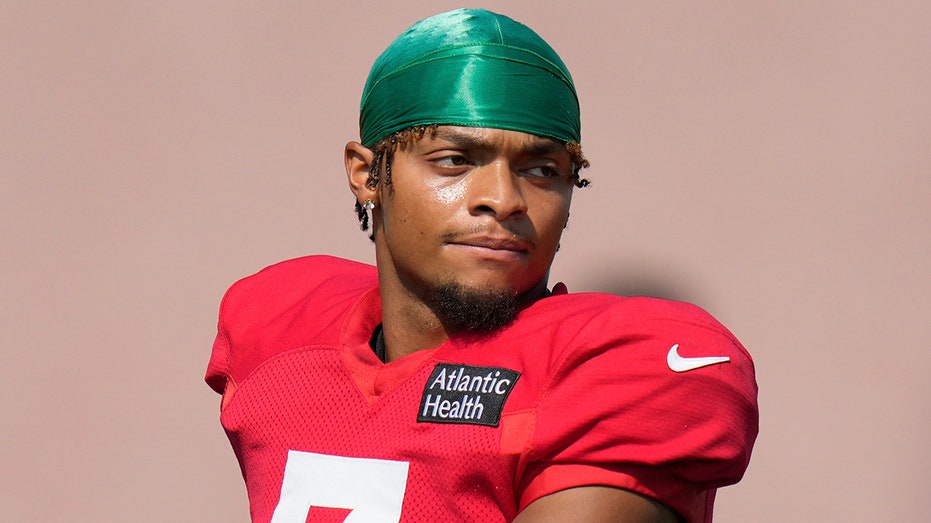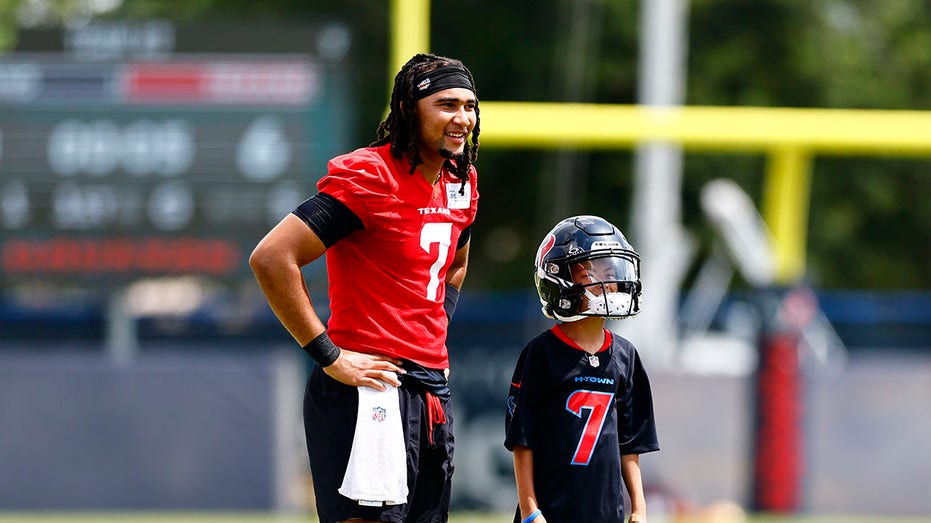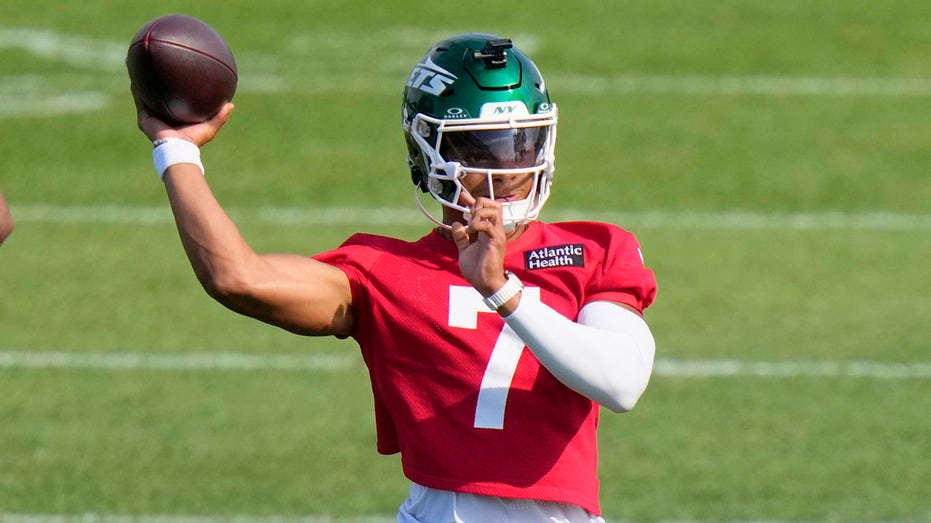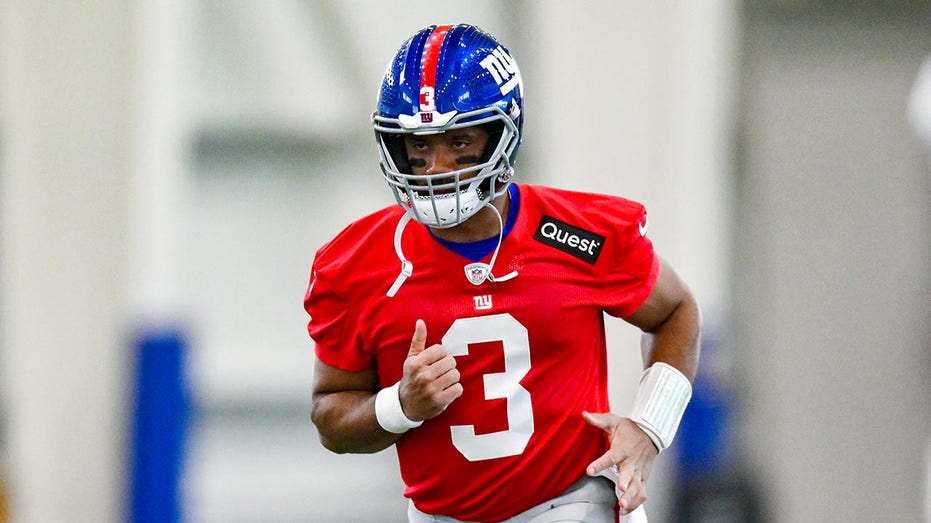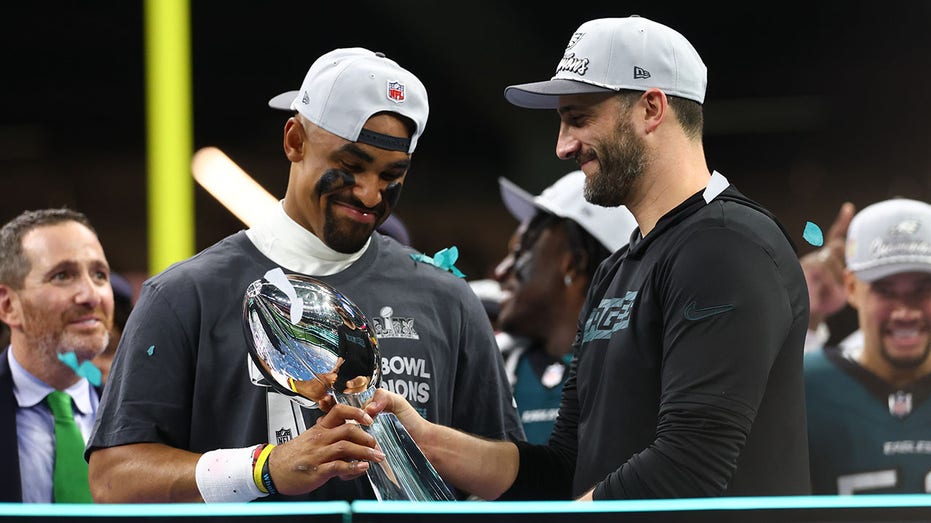Justin Fields' Faith: A Deep Dive into Sports, Religion, and Athlete Identity

Sarah Johnson
August 14, 2025
Brief
Analysis of Justin Fields' comments on faith, exploring the intersection of sports, religion, and authenticity in modern athlete identity. Historical & cultural context included.
The Quiet Revolution: Justin Fields, Faith, and the Evolving Athlete Persona
Opening Analysis: Justin Fields' recent comments about his deepening faith aren't just a personal anecdote; they highlight a growing trend of athletes openly discussing their spirituality. This isn't simply a feel-good story, but a significant cultural shift that challenges traditional notions of athletic identity and the increasing intersection of sports and personal beliefs.
The Bigger Picture: A History of Faith in Sports
The relationship between sports and religion is deeply rooted in history. From ancient Olympic Games dedicated to the gods to the Fellowship of Christian Athletes, faith has often been intertwined with athletic pursuits. In the past, athletes might have kept their faith private, or it was subtly implied through actions. However, the modern era has seen a rise in athletes openly discussing their faith, driven by increased social media visibility, a desire for authenticity, and a changing cultural landscape that is more accepting of diverse expressions of belief. Consider the historical context of openly religious athletes like Tim Tebow, whose public displays of faith were both celebrated and criticized, highlighting the complex societal reactions to religion in sports.
What This Really Means: Beyond the Endorsement Deal
Fields' comments signify more than just personal growth. They speak to the increasing pressure on athletes to be more than just performers – to be role models, advocates, and authentic individuals. By openly discussing his faith, Fields is reshaping the narrative around athletes, challenging the idea that they should only be defined by their on-field performance. This can also have implications for endorsements and sponsorships, as companies may be more inclined to partner with athletes who represent strong personal values.
Moreover, Fields' emphasis on internal validation (“I don’t play for anybody’s approval”) can be seen as a response to the intense scrutiny and criticism that athletes face today. By grounding himself in his faith, he seeks a source of strength and resilience that is independent of external judgment. This concept aligns with broader discussions about mental health and the need for athletes to find sustainable coping mechanisms in high-pressure environments.
Expert Perspectives
Dr. Richard Lapchick, Director of The Institute for Diversity and Ethics in Sport: "Athletes using their platforms to talk about their faith is not new, but the directness with which they are doing it, and the openness of the audience to these messages, has changed over recent years. Fields' message can be powerful for connecting with fans on a deeper level."
Data & Evidence: The Rise of Faith-Based Content
A recent study by the Pew Research Center found that 83% of Americans identify with a religious group, and many seek inspiration and guidance from their faith in all aspects of life. Social media analytics also reveal a growing interest in faith-based content: posts about spirituality and religion often generate high engagement rates, indicating a significant audience interest in these topics. In the context of sports, studies have shown a correlation between athletes' faith and their perceived leadership qualities and resilience.
Looking Ahead: The Future of Faith and Sports
Expect to see more athletes openly discussing their faith, thereby normalizing the integration of personal beliefs and professional identity with increased normalization through social media and direct fan connection. This could spark new discussions about the role of spirituality in sports, the impact on fan engagement, and the potential for athletes to be influential voices in their communities.
Furthermore, Fields' approach highlights a potential shift in how athletes manage pressure and criticism. By prioritizing internal validation and grounding himself in his faith, he offers a possible model for dealing with the mental and emotional challenges of professional sports. The more that athletes speak freely about their personal lives, the more we, as fans, are expected to deal with the narratives that they decide to create. The fans create the narrative, but the players create the story.
The Bottom Line: An Evolving Athlete Persona
Justin Fields' open discussion of his faith is not an isolated incident but a sign of a broader cultural shift in sports. It reflects a growing desire for authenticity, a changing attitude towards religion, and a recognition of the importance of mental and emotional well-being for athletes. As more athletes follow suit, the relationship between sports, faith, and society will continue to evolve, shaping the way we perceive and engage with our role models.
Topics
Editor's Comments
The commercialization of athletes often leads to carefully curated public images, which can lead to accusations of lack of authenticity as the fans feel they are not seeing genuine people. Justin Fields' willingness to be candid about how he navigates the stressors that come with being in the NFL provides a breath of fresh air. It can also be a calculated move to manage public perception and foster deeper connections with fans, sponsors, and communities that value faith and personal integrity. It's a complex dynamic worth observing.
Like this article? Share it with your friends!
If you find this article interesting, feel free to share it with your friends!
Thank you for your support! Sharing is the greatest encouragement for us.
